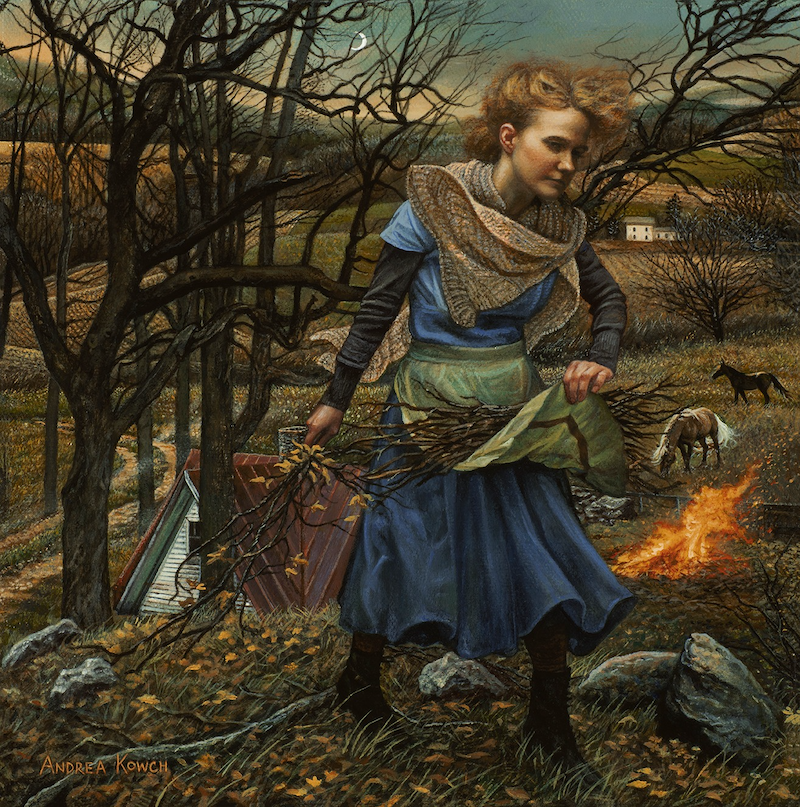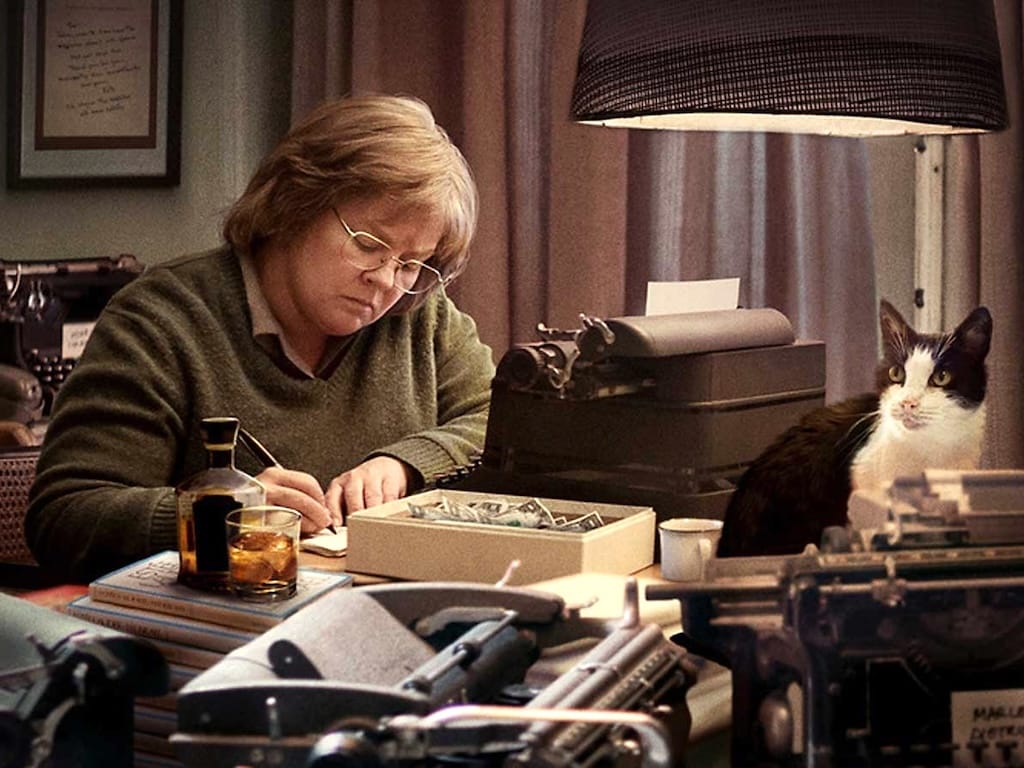With each passing day, I fear I'm one step closer to Christopher Knight, Lee Israel, and everyone on Wikipedia's list of recluses (sans murderers.) I feel like I'm totally burnt out on human interaction, even with those I legitimately appreciate. All I want to do is sit in a dark room with my cats while "Mad Men" runs for so many hours that "are you still watching" pops up multiple times. "Lindsay, this sounds like depression," you might say. And to that, I respond with a resounding "Duh.'
If you take the world at large out of the equation, my life is good by all measurable standards, but maybe it would be better if I completely shielded myself from all the following niche scourges of humanity:
- people dumb enough to believe in the rapture
- women who proudly label themselves "boy mom," or the less frequently bragged about "girl mom"
- anyone who stops in the middle of the sidewalk to text, FaceTimes in public, sets up a tripod to film themselves at the gym, or plays audio without headphones
- those responsible for killing Kirsten Dunst's "The Bell Jar" adaptation
- Swifties, Gaylors, and other rabid fans who have turned their love for something or someone into a cult
Now that my cathartic purging is through, it's time to yap about shit I actually enjoy.
I guess 2025 is my year of reading disturbing novellas that can be easily finished in a few hours. My attention span is shorter than it's ever been c/o world horrors, so it makes sense that my brain craves instant gratification. Will I ever get to Proust? If these first nine months of Cheeto 2.0 are any indication, probably not. Please don't tell Max Medina.
Luckily, there is no shortage of worthwhile literature from around the globe to satisfy my penchant for a mid-afternoon mindfuck. I read "Convenience Store Woman" last weekend in an attempt to pull myself out of my "Mad Men" haze. It totally worked because for the rest of the day, all I could think about is how this unassuming story managed to provide such nuanced commentary on gender and societal expectations.
The protagonist is a 36-year-old woman named Keiko Furukura who, much to everyone's disdain, is single and works part-time in a Tokyo convenience store. From a young age, she learned that if she acts like herself, other people respond unfavorably. Through her dead-end job that everyone reminds her is shameful, she's found a sense of purpose and identity, along with a clearly defined set of rules for dealing with humanity. Despite her life satisfaction, she's forced to contend with a nonstop barrage of judgments about her unconventional existence. Here's something a fellow co-worker tells her:
You need to wake up, Furukura. To put it bluntly, you’re the lowest of the low. Your womb is probably too old to be of any use, and you don’t even have the looks to serve as a means to satisfy carnal desire. But then neither are you earning money like a man. Far from it, you’re only working part-time without even a proper job. Frankly speaking, you’re just a burden on the village, the dregs of society.
Leave Furukura alone (Cara Cunningham voice)! I don't want to say too much about the rest of the bare-bones plot because I was surprised by how it unfolded, so I'll just note that something happens around the midway point and adds yet another layer of depth to Murata's deceptively complex philosophical framework. After reading "Convenience Store Woman," I immediately put library holds on the three other Murata books with English translations.
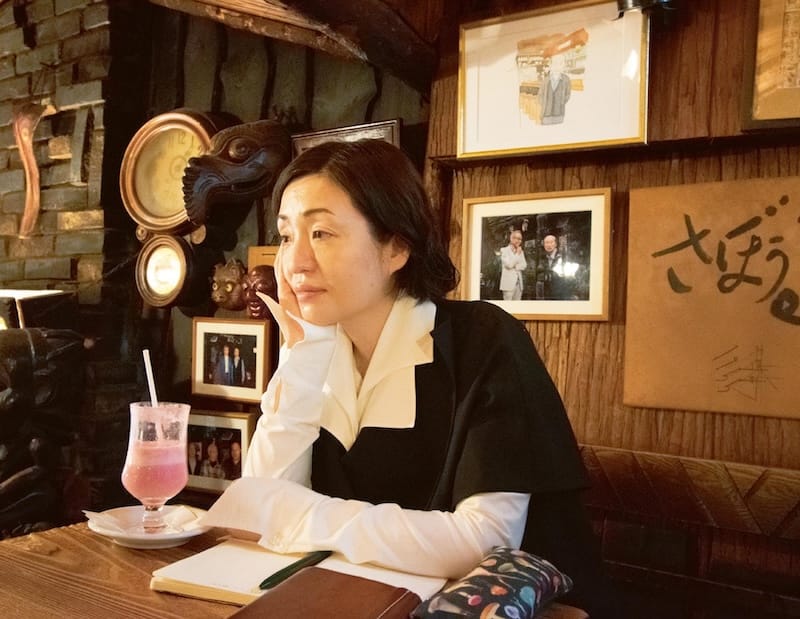
Read if you like: Naomi Kawase, "Pizza Girl," "No Longer Human," other books from Women vs. the Void, "Perfect Days," neurodivergence, the comfort of routines, "Plan 75."
I saw a trailer for "The Ugly Stepsister" during "Misericordia," was delightfully freaked out, and then promptly forgot about it until Candace said she loved it. Either I'm living in a hole or the marketing budget tapered off significantly after the initial push. Regardless, I had a great time watching Emilie Blichfeldt's feature film debut last night and greatly preferred it over Coralie Fargeat's Oscar-nominated "The Substance" (2024). Not to pit two films written/directed by women against each other, but it's hard not to compare them when they deal with many of the same themes — like destruction via adherence to patriarchal beauty standards — through the lens of body horror. Of course, "The Substance" is more about desperately clinging to the guise of eternal youth, whereas "The Ugly Stepsister" is about doing whatever it takes to find a wealthy husband.
The film roughly follows the Brothers Grimm version of "Cinderella" where a rotten woman with two daughters marries a man with one. When he dies shortly after the wedding, his beautiful daughter, the Cinderella figure, is forced to work as her wicked stepfamily's servant. When the local prince holds a ball to help him find a wife, Cinderella shows up and steals the show with the magical help of her dead parents. She leaves behind a shoe, the prince searches for its owner, and I think you know the rest. Only, in the Grimms' telling, stepsister toes are lopped off in hopes of fitting the shoe.
In Blichfeldt's rendition, the story's point of view is firmly aligned with Elvira (Lea Myren), the older "ugly" stepsister of marriageable age. The younger sister, Alma (Flo Fagerli), is delightfully lesbian-coded and appropriately disturbed by everything Elvira does in her desperate attempts to woo the prince. Along with the toe amputation are gruesome scenes involving plastic surgery and medieval GLP-1s. There are also: cumshots, full frontal peen, butthole, and the constant threat of diarrhea. It's a gross film (complimentary) that looks absolutely beautiful thanks to outstanding cinematography by Marcel Zyskind and richly textured production/set design by Sabine Hviid and Klaudia Klimka-Bartczak. From the opening credits, I knew I was going to like it even if the screenplay disappointed me (and it kind of did, if I'm being honest, but this is still a stellar first feature).
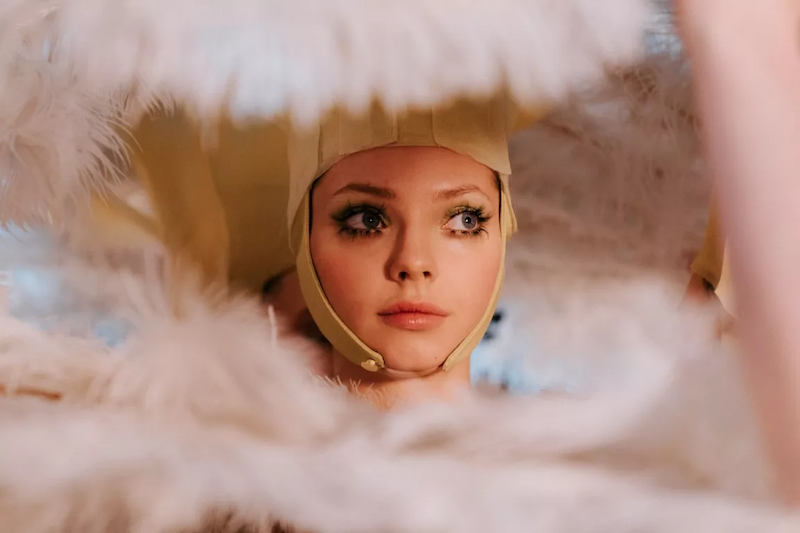
Watch if you like: "Braid," Sofia Coppola's "Marie Antoinette," "Innocence," David Cronenberg, Bret Easton Ellis, incredible set design, Shelley Duvall’s “Faerie Tale Theatre."
Is "Slow Horses" a good show? Wellllll... the fact that I can't recommend it without a bunch of caveats gives you some indication. Much like "Bron/Broen," it's not something I would typically watch, but the acting sucked me in and now I'm committed even though it's been making increasingly questionable plot decisions. Based on Mick Herron's Slough House series of spy novels, each season is a relatively faithful adaptation of the corresponding numbered book (there are now nine volumes). S5, following Herron's "London Rules" novel from 2018, started this week on Apple TV+, and I'd be lying if I said I wasn't looking forward to it all summer despite S4's uneven storytelling.
Set in London, the show follows a group of MI5 agents who fucked up on the job — often c/o mental health issues or personality disorders — and, instead of being fired, were sent to a department of misfits called Slough House, run by the slovenly king of DGAF, Jackson Lamb (Gary Oldman). The cast is an ensemble, although River Cartwright (Jack Lowden, AKA Mr. Saoirse Ronan) is the primary protagonist. In the S1 premiere, we see the event that leads to his Slough House relegation, opening up eventual questions of MI5 corruption. River's retired grandfather (the beloved Jonathan Pryce) was previously head of MI5, making him the perfect nepo baby shoo-in, so his ousting is suspicious, even if it's not completely unwarranted.
Each season is structured as a self-contained story and typically involves Slough House outsmarting the MI5 headquarters in some sort of espionage conundrum. It's one of those shows where you could technically start with the current season, but you'd be missing character nuance and backstory, which, along with the acting, is by far the best part of the show. Along with Lowden and Oldman, who have a delightfully contentious mentor/mentee relationship, other standouts include: Kristin Scott Thomas as Diana Taverner, the unhappy second in command at MI5, and Saskia Reeves as Catherine Standish, Oldman's punching bag office manager who is much smarter than anyone acknowledges. I credit brilliant casting director Nina Gold with taking what could have been a middling show and turning it into a showcase for some of the best acting on TV.
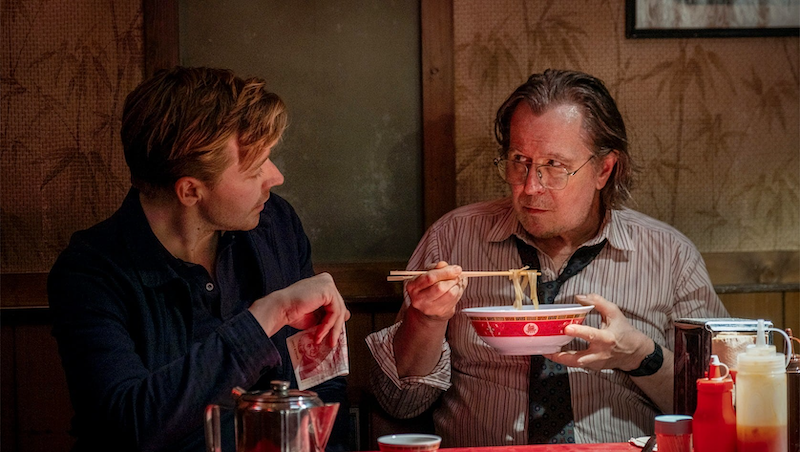
Watch if you like: John Le Carré novels, fart jokes, shows Jake Peralta would love, underdogs, greasy kabob shops, "Killing Eve" without the psychosexual tension, James Bond far past his prime with loo roll stuck to his shoe.
I'm reviving this recommendation from my old email newsletter because not enough people have seen it, it's the perfect brain rot spooky season show and, since it was unduly canceled, there are only two seasons. You can skip the second one, though; it's the bad type of trash.
I really enjoy I. Marlene King and her soap opera-esque horror dramas infused with ample Hitchcock references. Even when the original "Pretty Little Liars" went totally off the rails with the A-Team bullshit, I was mostly onboard. I had low expectations for this spinoff ("Ravenswood" was terrible) but after watching seven episodes in rapid succession, I am pleasantly surprised. King is still an executive producer on the show, but Roberto Aguirre-Sacasa and Lindsay Calhoun have taken over showrunner duties, and I think there's a definite benefit to their more coherent storytelling approach. Aguirre-Sacasa created shows like "Riverdale" and "Chilling Adventures of Sabrina," both of which I liked tonally but stopped watching when they rapidly declined in quality. Calhoun also wrote for "Chilling Adventures," which is how I assume those two met each other.
The premise of this spinoff is similar to the OG: A bunch of high school girls start getting threatening messages from someone who goes by "A." The girls are all connected through their mothers, who were friends in high school and witnessed the brutal suicide of a girl named Angela on New Year's Eve in 1999. The show is filmed in upstate New York, although it very much reminds me of the small, shitty steel town where I grew up in western PA. As with "The Ugly Stepsister," the vibes are truly immaculate. There is a dance scene straight out of "The Virgin Suicides," a deranged ballet teacher, a carnival with funhouse mirrors a la "Us," and a fancy hotel that used to be a sanitarium. It's giving equal parts Ray Bradbury and classic teen slashers. I love it so much.
Generational trauma, sexual assault, bullying, and teen pregnancy are all big issues that the show tackles. The OG "PLL" wasn't super adept at diving into the serious stuff, but I'm impressed thus far with how "Original Sin" is treating sexuality, rape, and predatorial relationships. Even if you didn't watch (or hated) the original series, give this one a shot.
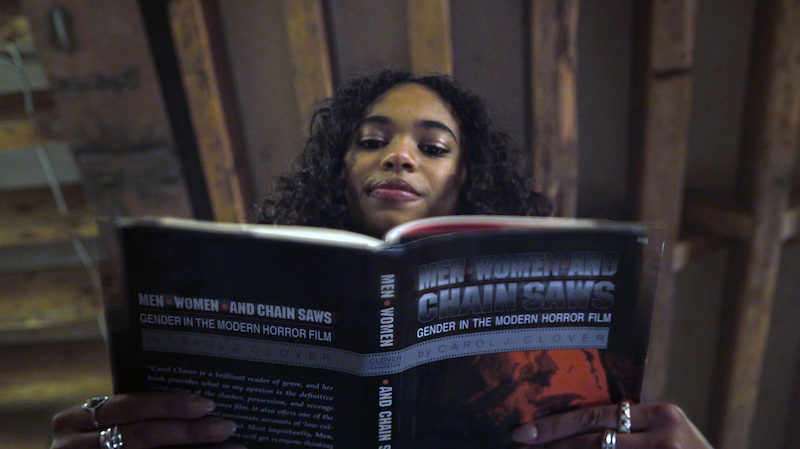
Watch if you like: "Carrie," "House of Psychotic Women," "It Came from the Closet," elaborate set design, vintage Halloween decorations, "Yellowjackets."
By now, you probably know that I'm a bit obsessed with picture books. I don't have kids, so I'm coming at it from the perspective of an enthusiast, not as a parent trying to discover things my child might enjoy reading. I've found, through years of gifting "Dorrie the Little Witch" to many unimpressed jam hands, that kids are often bored by what I find cool. Sometimes, with the help of stupid voices and a hint of razzle dazzle, I've managed to convert them, but my success rate is probably only 15%. I also suck at figuring out what's age appropriate because most of the kids in my life live too far away for me to see them with much regularity.
In an attempt to both discover new gems for my own pleasure and gain a better understanding of what kids like and why, I've turned to Looking at Picture Books, a Substack run by children's authors Jon Klassen and Mac Barnett. They give recommendations; discuss themes; and, in my favorite feature, do deep dives on old classics like "Millions of Cats" and "Frog and Toad." As someone who is not looking for yet another fucking podcast, I appreciate that Mac and Jon discuss everything in text format. Reading their conversations is like being in an excellent group chat with no obligation to participate. Here's a comment from Mac about the enduring popularity of "Goodnight Moon":
I think it’s because it uses the tools of the picture book — language and pictures — to encompass so much of the experience of falling asleep. How hallucinatory and bizarre falling asleep is. How so much of falling asleep is feeling very awake. And most importantly, how scary falling asleep can be. “Goodnight nobody” acknowledges the chthonic dread of bedtime. Yes, sleep is mysterious and unknowable. Yes, the whole thing is weirdly proximate to death. These are uncomfortable truths, the stuff adults don’t like talking about, and it’s comforting, as a kid, to have them validated by a picture book.
Along with everything they say about "Goodnight Moon" and my gal Margaret Wise Brown, definitely check out their analysis of "The Dream" from "Frog and Toad Together." Some of their stuff is paywalled, but it's worth paying $5 for one month to peruse the archives.
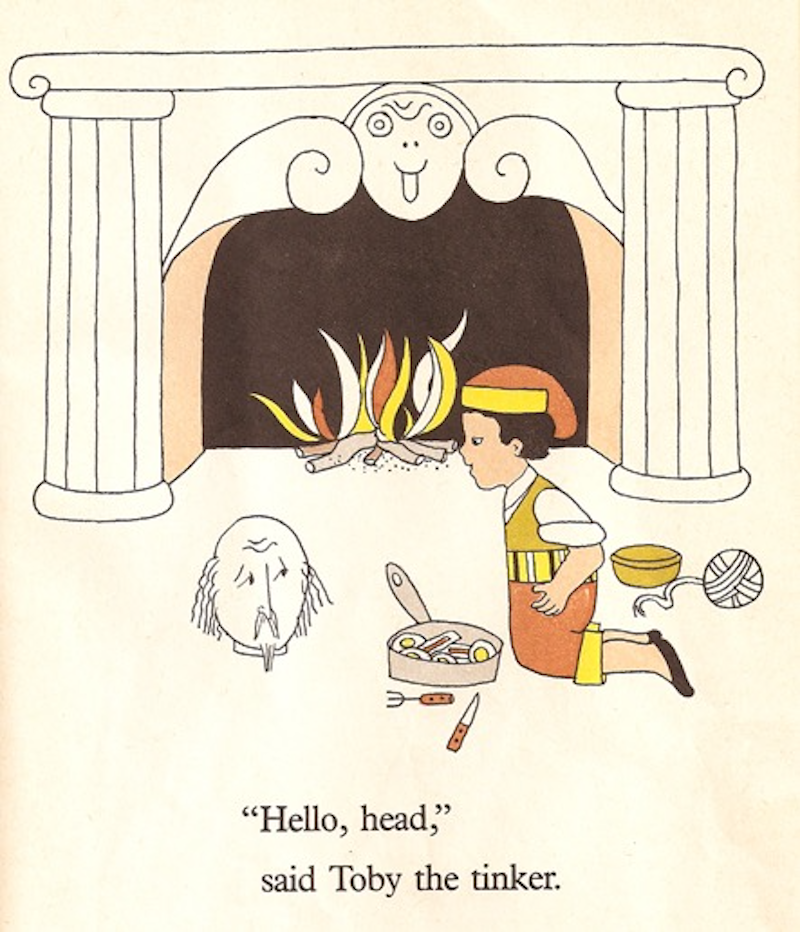
This weekend brought to you by Detroit artist Andrea Kowch's dark, delightful gothic pastoral paintings that remind me of Ray Bradbury and the Dear America series (millennial women, I know you are familiar).
